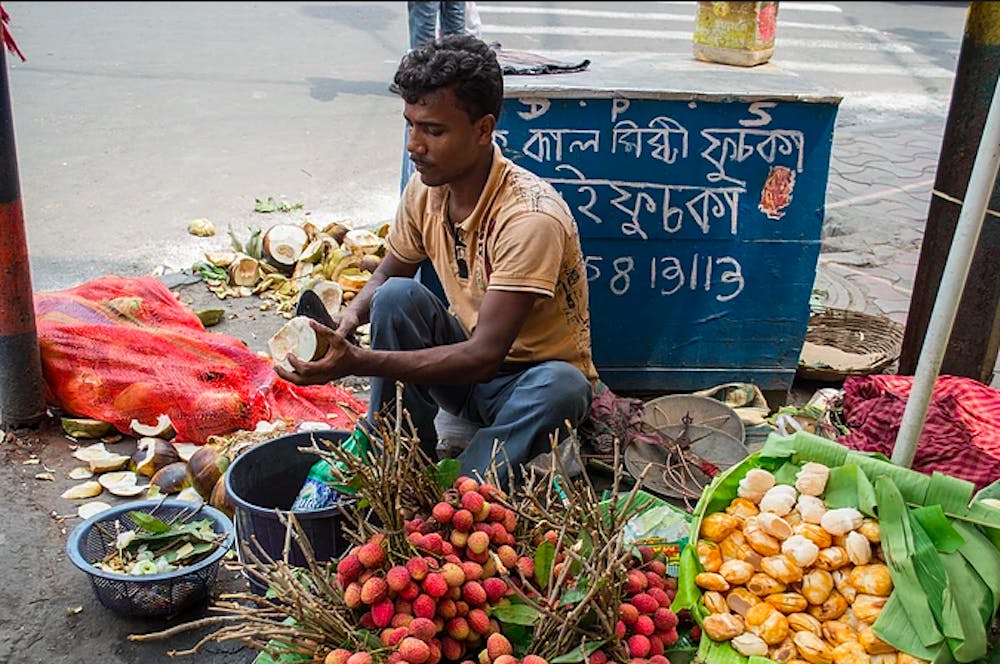Alexis Masino (C'20) chose to spend two months of her summer to work in Calcutta, India, with a sex workers' collective. The social work program, headed by Penn's graduate school of Social Work, sent a cohort to India to study feminist texts, work directly in Songachi, one of the world's largest red–light districts, and to live like locals. Alexis explained this unorthodox program to Street (Ed. note: we commend her resourcefulness in finding wifi).
Street: Can you give an overview of the course in a general sense?
Alexis Masino: This is a social work course based on social welfare in India, specifically in Sonagachi (one of Asia’s largest red light districts) and centered around the rights of the sex workers. We are working with Durbar (the collective of and for sex workers) to interview the women and collect statistics, ultimately creating group research projects to be used by the organization in the future, while engaging with texts focused on international social work and South Asian feminisms.
Street: The course focuses on a sex workers' collaborative in a red–light district. How do you as a member of this academic program interact with members and organizers of the collaborative?
AM: Our interactions with Durbar, its administrators, and the workers are very casual. To put it in perspective, I would compare it to getting to know a new friend. The most important part is to understand that these women are human, and to treat them as such. They are not some type of charity case and they are certainly not victims. This being the case, we are not here to “save” them; our goal is to listen to their stories and gain an understanding of their lives and the work Durbar does to make their jobs safer. Initially, we are introduced to them and have basic discussions to know them better. We listen to their stories and ask questions in a very friendly environment, without interrogation or pressure from either side.
Street: You're spending three days a week in Sonagachi. Can you describe it to someone who has never been there?
AM: Sonagachi is nothing like what I expected from a red–light area. As a Philadelphia native I have been to areas where sex work is common, like Kensington. Unfortunately, those areas tend to have dangerous working conditions among prevalent drug use and that is usually the association in our country. Sonagachi is very different. Drug use is if not uncommon, virtually nonexistent and thanks to the development of Durbar, the working conditions are much safer for the women. While brothels line the streets and the sex workers wait to receive clients, the city functions quite normally. There are stores and shops as well as produce carts and restaurants. It is very much like any other neighborhood I have experienced in Kalighat, aside from there being places to purchase sexual services. It is quite normalized, especially in this area. That being said, I have not yet experienced the district during the night. I am told it will be a bit “dangerous” by American standards but only because, being women in Sonagachi after dark, it is likely the men could mistake us for sex workers and attempt to make offers.
Street; What has been the most difficult part of the transition to living on an entirely different continent?
AM: At first, the move was incredibly difficult. This is by far the farthest I have traveled and my first legitimate time even leaving the country. Jet lag was the first adjustment; India is 10.5 hours ahead of the United States and it took me several days to get my sleep schedule on track. The next adjustment was food. To avoid any serious diseases we are advised to eat only cooked food, but even the cooked food has different bacteria than our stomachs are used to processing. Other than that, there were a few logistical adjustments like driving and walking on the left side of the road as well as immense crowds, people often not speaking English, the amount of stray dogs, and living among cockroaches. Though the most difficult part to overcome was the initial homesickness. I have never been one to miss home much but the first week or so had me missing America a lot, even counting down the days until I would be home. As I adjusted, this passed very quickly. Now in my third week here, Calcutta (and more specifically Kalighat) feels like home and time is already flying too quickly for my liking.
Street: This seems like a grueling way to spend a summer. What inspired you to pursue work here and in this specific program?
AM: It definitely isn’t the most glamorous or luxurious way to spend a summer but India is a place I have wanted to visit since I was young, and I always knew I wanted to come here for a deeper purpose than just traveling. When I came across this social work program where I would not only be taking a class but actually interacting with and providing some sort of assistance to the people here, I knew it was a perfect fit for me.







